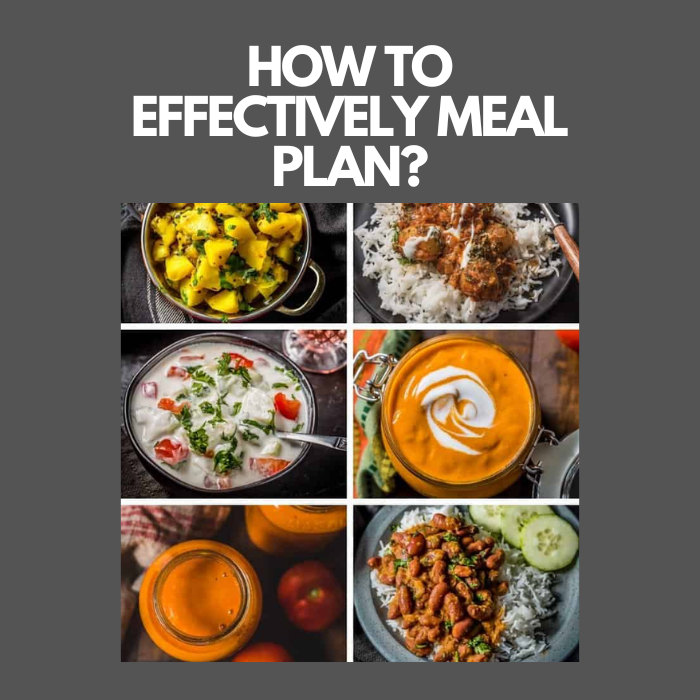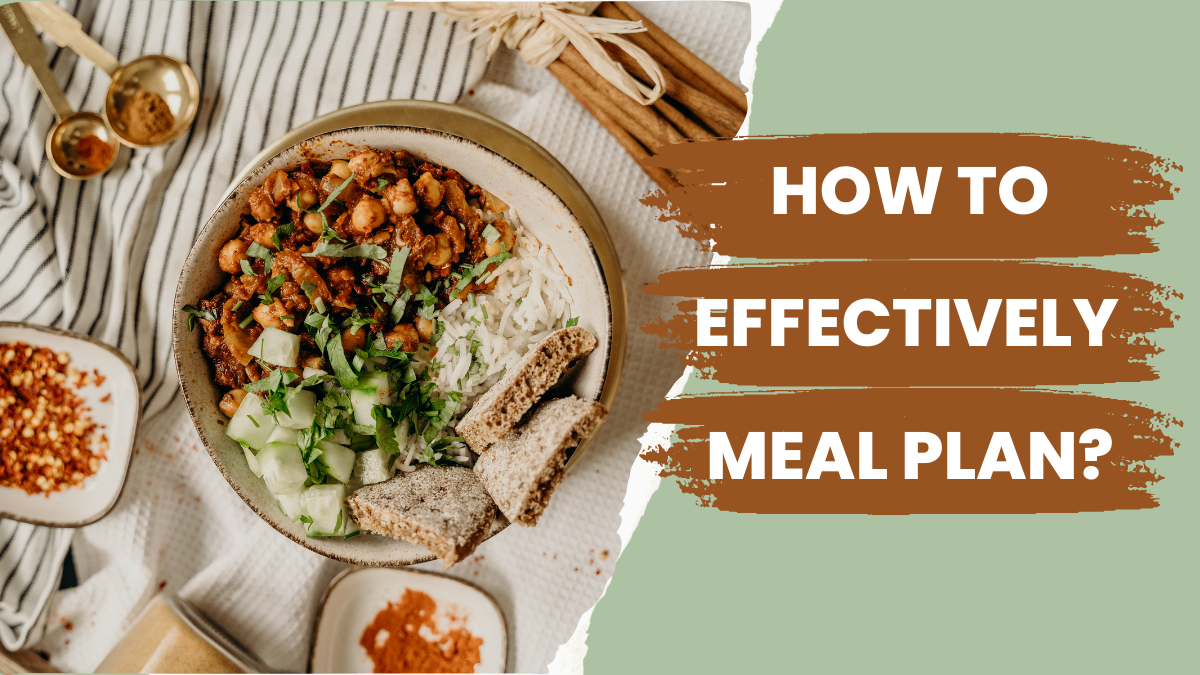How To Effectively Meal Plan?
Do you find yourself staring into the fridge every evening, clueless about what to make for dinner? Or perhaps you’re tired of constantly ordering takeout and want to start eating healthier meals plan at home? Well, look no further! In this blog post, we will unveil the ultimate secret to conquering your kitchen chaos – how to effectively meal plan.
Get ready to discover how a little bit of organization can revolutionize your cooking routine, save you time and money, and ensure that delicious homemade meals are always on the table. So grab a pen and paper because we’re about to dive into the art of mastering meal planning like a pro.
Table of Contents
What is Meal Planning?
People who meal plan generally have more success with their weight loss goals. Meal planning helps people to track their food intake and make better choices overall. There are a few key things that you need to do in order to get started with meal planning:
- Figure out what your daily caloric needs are. This will help you determine how many calories you should be eating each day.
- Decide on your meals for the day. Determine what you would like for breakfast, lunch, dinner, and snacks. Remember to include healthy carbohydrates, protein, and fats as well as plenty of fluids when planning your meals.
- Create a shopping list of ingredients that you will need for each meal. Make sure that all of the ingredients are healthy and low-calorie.
- Preparing your meals ahead of time can make them easier to eat and less stressful. You can either cook your meals or pre-pack them and store them in the fridge or freezer.
- Follow the plan religiously! If you find that you’re not sticking to the guidelines, try modifying them slightly until you find an approach that works best for you.

How to Meal Plan for a Healthy Diet?
Meal planning is an important part of a healthy diet. It can help you stay on track and make sure you are getting the nutrients your body needs. There are a few things to keep in mind when meal planning:
- Make sure each meal contains a variety of foods. This will help to avoid feeling hungry all the time and increase your chances of sticking to your diet.
- Try to have at least three meals per day. This will help keep your metabolism going and ensure you are getting the right amount of nutrients throughout the day.
- Choose nutrient-rich foods when meal planning. These will give you the most benefit and help you stay healthy overall. Examples of nutrient-rich foods include fruits, vegetables, whole grains, and lean protein sources such as fish or poultry.
- Avoid eating too many processed foods or sugary drinks when meal planning. These items are high in calories and not very good for your health overall.
The Benefits of Meal Planning
There are many benefits to meal planning, including saving money, being able to eat healthier, and having more control over what you eat. Here are six reasons to start meal planning today:
- Save Money: One of the biggest benefits of meal planning is that it can save you money. By knowing what foods you will be eating and when you can avoid buying unnecessary groceries. Plus, by using a schedule, you can plan your meals around cheaper grocery sales.
- Eat Healthy: Meal planning can help you eat healthier. By cooking at home instead of going out to eat, you can control the ingredients in your food and make sure that it is healthy for you. Additionally, by setting aside specific times for breakfast, lunch, and dinner, you can ensure that each meal includes a balanced diet.
- Have More Control Over What You Eat: When you plan your meals ahead of time, you have more control over what you are eating. This allows you to choose foods that suit your taste and health needs. It also allows you to avoid unhealthy snacks or binges when they happen naturally without any warning.
- Stay on Track: Meal planning helps keep track of your food intake so that you don’t overeat or skip meals altogether. This helps ensure that your body gets the nutrients it needs and avoids weight gain or loss due to fluctuating energy levels or cravings for unhealthy foods.
- Adjust Your Diet As Needed: If you find that your diet is not working for you or that you are struggling to lose weight, you can adjust your meal plan as needed. This will help you to reach your goals faster and with less effort.
- Enjoy Cooking Again: Cooking at home can be a fun and delicious way to spend time with family and friends. When you cook meals from scratch, you are in control of the ingredients and can make them how you want them. This can be a great way to improve your cooking skills and learn new recipes.
Types of Meal Plans
There are a few different meal plans that you can use to help you effectively grocery shop and meal plan:
- The first meal plan is the Flexible Diet Plan. This plan allows you to eat whatever foods you want as long as they fit within your daily calorie and protein requirements.
- The second plan is called the Healthy, Happy, and Lean Plan. This plan focuses on healthy foods that will help you lose weight and maintain your muscle mass.
- The last plan is the 5-Day Meal Plan for Beginners. This plan provides an easy way for beginners to get started with meal planning.
How to Create a Meal Plan?
There is no single answer to this question as everyone’s dietary needs are different. However, by following a few general tips, you can create an effective meal plan:
- Assess your daily caloric needs. This will help you determine how many total calories you need per day and the macronutrient breakdown of those calories (protein, carbs, and fats).
- Make a list of foods that fit into each of your daily calorie goals. Include both healthy and unhealthy options. You don’t want to deprive yourself of any essential nutrients, but you also don’t want to overdo it on unhealthy foods either.
- Create a grocery shopping list based on your caloric goal and food list. Be sure to include all the ingredients for each dish as well as any condiments or herbs you may need.
- Cook your meals ahead of time and store them in the fridge or freezer for later use. This way, you won’t have to worry about running out of food during busy weeknights or stressful weekends.
How to Follow a Meal Plan?
A meal plan can be a great way to help you stay on track with your nutrition and lose weight. There are a few things to keep in mind when following a meal plan, though:
- First, make sure to pick a meal plan that fits into your daily caloric and macronutrient goals.
- Second, be sure to take into account the time of day you are eating.
- Third, be mindful of your hunger levels and adjust portions accordingly. Pay attention to snacks and dessert! A good meal plan will have enough calories and nutrients to support snacking throughout the day.
Recipes and Ideas for Meal Plans?
There are a few steps you can take to help make meal planning easier:
- First, set some realistic goals. You don’t want to overspend or under-eat, so start by thinking about what you would like to eat each day and dividing that up among the meals.
- Second, create a shopping list based on the meals you have planned. This will help keep your pantry and fridge stocked with the necessary ingredients.
- Cook your meals ahead of time and store them in containers in the fridge for easy access. Combining these tips will help you successfully meal plan every week.
Conclusion
Meal planning can be a daunting task, but with the right approach, it can be an incredibly successful way to eat healthily and effectively. Planning your meals in advance allows you to have greater control over what you are eating and helps to optimize your diet for the best results.
By following a meal plan, you’ll not only see big weight loss improvements but also increased energy levels, better mental clarity, and improved digestion. It takes some effort up front to put together a good meal plan, but the payoff is worth it.






